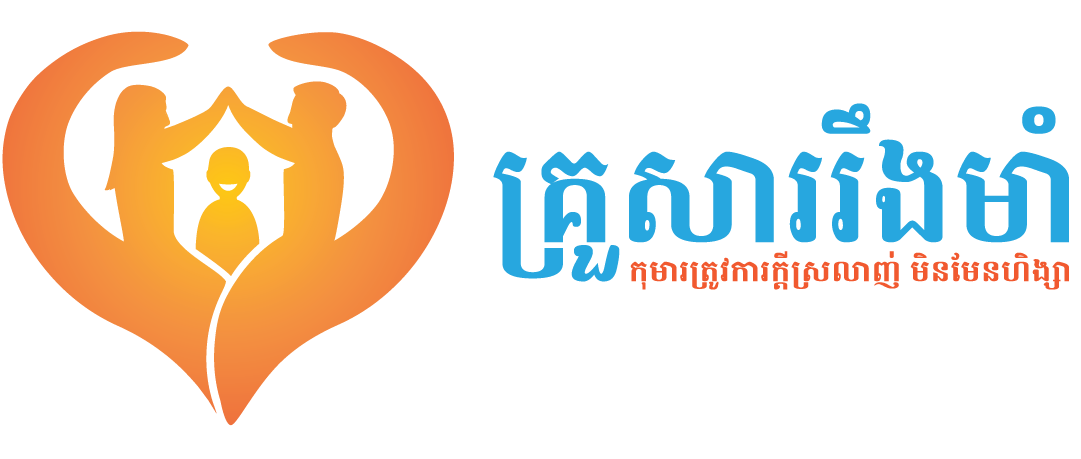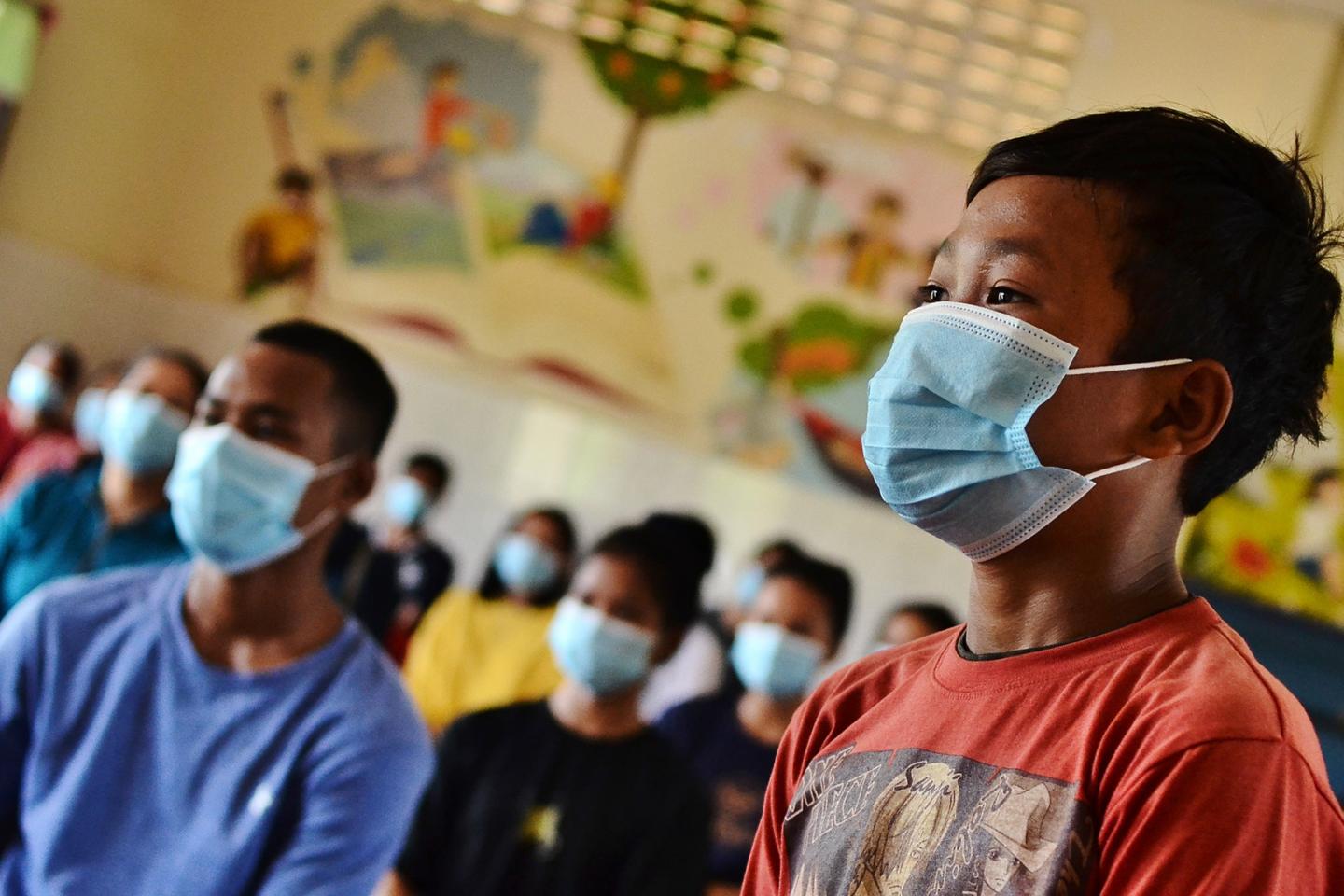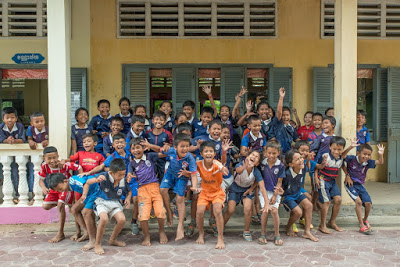
Under a tinned-roof house with a barely head-height ceiling, a group of five children and their caregivers are listening carefully to social workers. Today they are learning about Covid-19– a disease that has forced their school to close and limited their interactions with friends and neighbours.
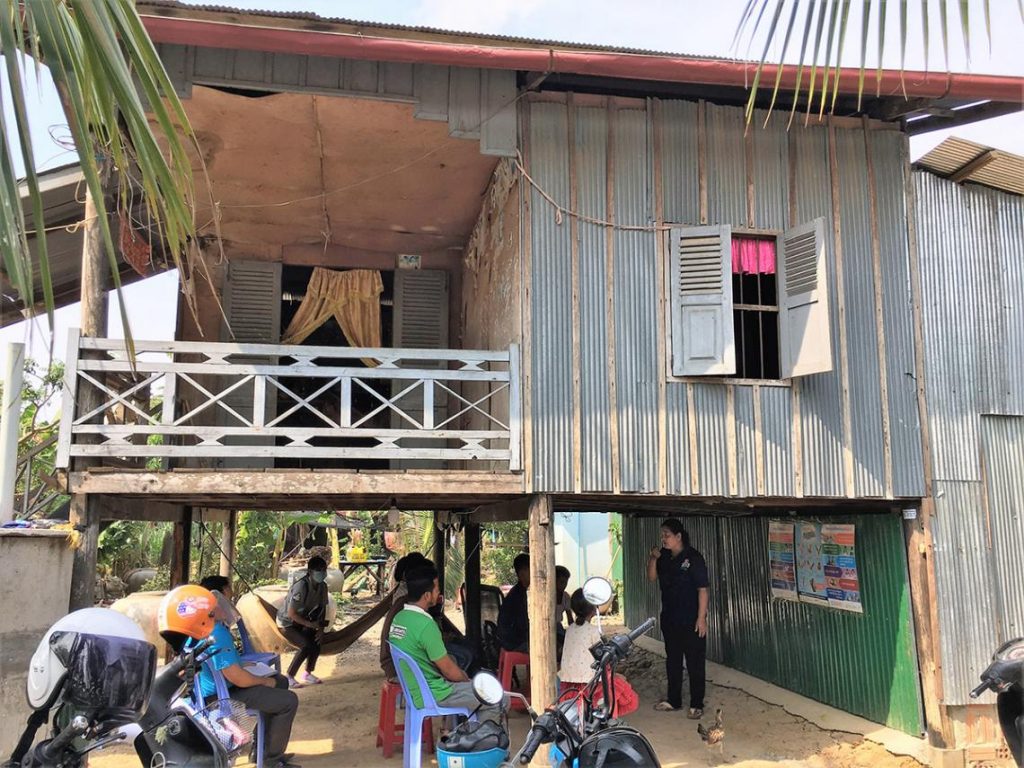
Dalis*[i], aged 11, and her 13-year-old brother, Dara*, are the two of the most enthusiastic. “I have to wash my hands with soap and clean water,” said Dalis when asked about how to protect herself from getting Covid-19. “And we need to stay at least two metres away from others,” added Dara. They both demonstrate how to wash hands and keep a distance to the rest of the class.
Dalis and Dara are among the five children that are living with foster parents, who are supported by a local NGO, Komar Rikreay (KMR), in Battambang province. Rather than placing them in an residential care institution, the NGO provides alternative care in a family and community setting, helping them to grow up stronger, both physically and mentally.
Long Saran, KMR project officer, leads the learning session today. She repeats Covid-19 precautions and lets children and their foster parents practice. Her messages including handwashing with clean water, soap or alcohol-based gel, covering nose and mouth with a tissue or flexed elbow when coughing or sneezing, wearing masks and keeping a two-meter distance from others.
“I need to talk a lot and repetitively to make them understand. I let them practice, and I follow up later if they really do in their daily activities,” said Saran.
[i] **Names chaged to protect children’s identity.

Long Saran, project officer of KMR demonstrated handwashing hands to children
For the last two months, this is a routine Saran,other social workers and NGO staff across the country have been doing to support vulnerable children in alternative care. They provide hygiene supplies, organize learning sessions, enforce the practice of the recommended precautionary measures and offer mental counselling.
Kheng Sokhavatey, a nurse from the Cambodian Children’s Trust (CCT) in Battambang province, finds herself having an additional role as an informal counsellor to children and caregivers who feel uncertain during this pandemic. In all of her learning sessions in foster care homes, she observes if anyone needs advice and guidance and offers support, including making referrals to her team.
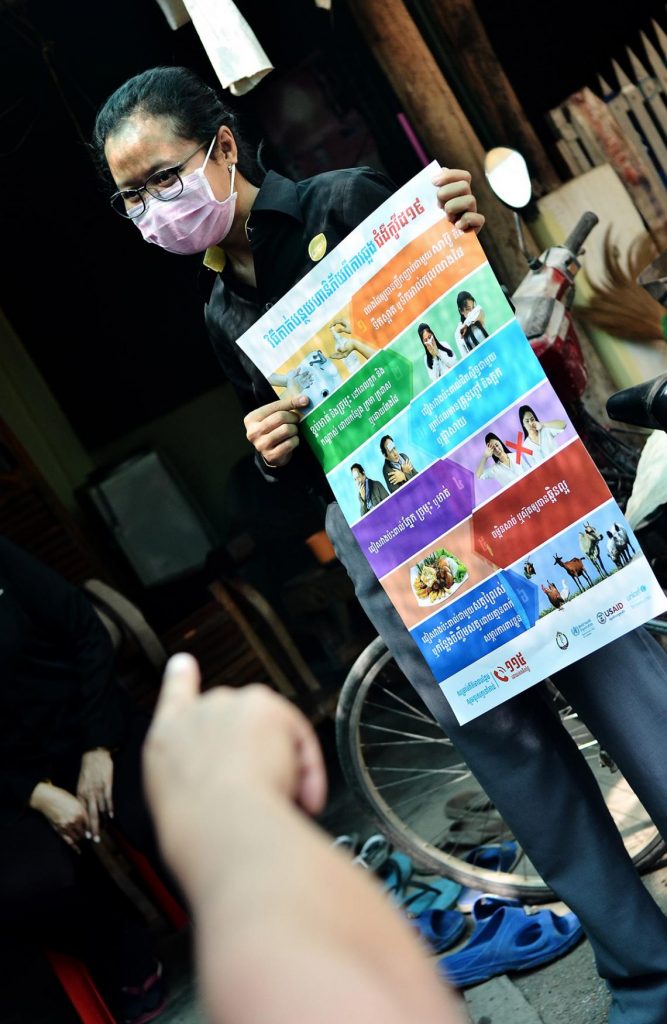
Kheng Sokhavatey, a nurse of NGO CCT, asked children of Covid-19 precautionary measure.
“Children’s mental health has been affected during this time because they fear of Covid-19. Helping them to understand the disease better, how to protect themselves and reassuring them that they have us for support could ease their worries,” said Sokhavatey.
Children at larger residentiall care facilities are also facing a lot of unexpected difficulties during this time, adding to their existing challenge of a lack of family care.
In Cambodia, 9,383 children are living in institutional care facilities, and 1,469 others are being reintegrated into families and communities. These children need more support than ever for education and play, water and sanitation, protection from abuse, and mental health.
Tim Sreyoun, a social worker from Battambang provincial Department of Social Affairs Veterans and Youth Rehabilitation (DOSVY) witnesses children’s struggles every time she visits residential care institutions. Recently, she finds they play less, not only because of the application Covid-19 precautions, but also the lack of toy varieties. With less play and interaction with friends, they are less active and more stressed.

Tim Sreyoun, a social worker from DoSVY, made sure children wash their hands properly.
“They keep asking me when the pandemic will be over. I say I do not know and turn their attention to precautionary measures. The technique does not always work; sometimes they get bored and lose trust in me. But by spending time listening to understand them, I can stillhelp them to feel better,” said Sreyoun.
As the pandemic prolongs, children’s frustration mounts. Difficult conversations between them and their social workers and caregivers are becoming more regular. This is also the case for children and their birth parents in poor communities. With less monitoring from their parents, many of whom are already struggling with family livelihoods, children ignore precautionary measures and return to their normal lives.
“My children do not listen to me when I tell them not to go out if not necessary. We have tough talks and end up with a comprise that they wear masks and wash hands more often when they play outside,” said a 55-year-old father, Houn Loung, in a learning session.

Houn Loung shared experience on Covid-19 protection and how to talk to children about the pandemic.
A local NGO, Improving Cambodia’s Society through Skilful Parenting (ICS-SP), teaches Loung and other parents on positive parenting to prevent violence against children. Now, they also include Covid-19 prevention tips. The skills and new knowledge are now more relevant and useful than ever for helping parents to cope with diffulties including losing family income andworrying about their children’s safety.
UNICEF supports the efforts of NGOs and social workers to reduce the impact of Covid-19 on vulnerable children. At the time of writing, Cambodia reported 124 people infected by Covid-19 and all recovered. UNICEF, with contributions from USAID and the Government of Japan, has conducted a nationwide emergency risk communication and community engagement campaign that has so far reached more than 10 million out of the country’s population of 16 million.
[i] **Names chaged to protect children’s identity.
